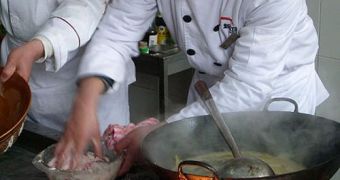According to officials with the UN Food and Agriculture Organization (FAO), the 1 billion people that go to bed every night hungry are the product of economic inequalities and distribution problems, and not of lack of abundance.
In other words, there are sufficient amounts of food on Earth to sustain the current population, but it is divided poorly among the people, resulting in the current gap.
Official statistics show that 1 in 7 people around the world live in conditions of extreme poverty, and that they have no food to keep them alive.
It is widely known that the factors keeping these many people in starvation are complex and intimately linked. They include economic agendas, governmental incompetence, carelessness in handling funds and so on.
The western, developed world is one of the main actors that keeps Africa in starvation, for example. The way this is done is by conditioning the shipment of aids with governments not intervening to subsidize agriculture.
This means that we are asking a free market of Africa, when such a construct does not exist anywhere else in the world. Even the United States provides subsidies for agriculture, and yet it demands Africa to not do the same.
So the question is, how can you make a difference in the world individually, by using the mechanisms of market economy against those who manipulate them?
The main thing, experts with Our World say, is to consume food that is produced locally. Anywhere you go in the world today, in developed countries, you are likely to encounter foods from halfway around the globe.
The US market is for example filled with fruits imported from Latin and South America, and seafood brought in from Asia, even though it can produce most of these products on its own.
While it is true that you pay less at the counter for foods imported from far away, you are actually helping promote a vicious circle whose consequences will eventually spread around the world.
Asian seafood, for example, may come from the Mekong River Basin, once a haven for mangrove forests, now a polluted area where overcrowded fisheries work around the clock to produce the products people in developed countries don't want to pay a few cents more for.
Spanish tomatoes may have similarly been collected by a migrant, underpaid laborer that works for 10 to 16 hours a day in miserable conditions.
Becoming “food literate” is the best thing we can do. This means we need to learn how to figure out where the food we eat comes from, and then shop responsibly, supporting local producers.
Also interesting to note is that the developed world, which is by nature wasteful with its food, will need to learn how to do this eventually.
Joint estimates from the Organization for Economic Cooperation and Development (OECD) and the FAO Agriculture Outlook show that food prices will grow up to 40 percent over the next decade.
If the current food system is preserved, than world hunger will spread even more, until even people in countries such as the US, the UK and Japan will not be able to hide from it.

 14 DAY TRIAL //
14 DAY TRIAL //